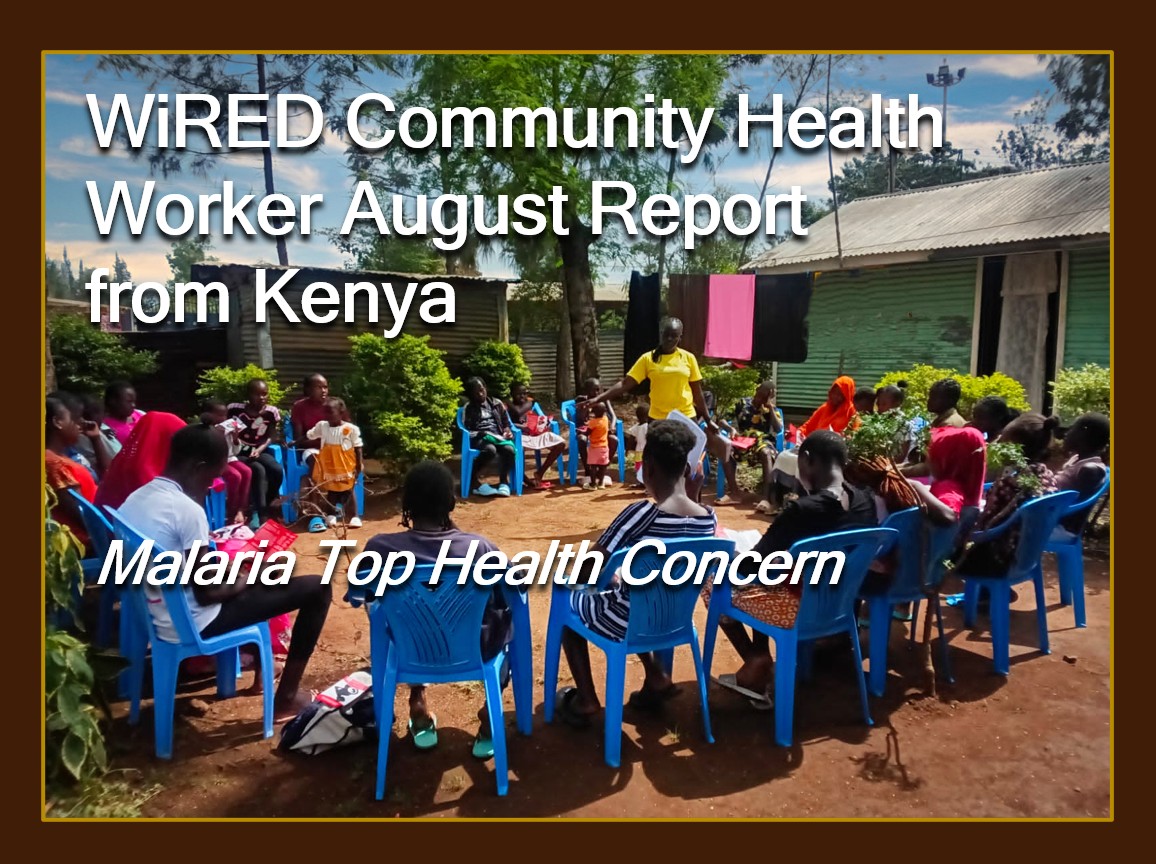By Allison Kozicharow; Edited by Elizabeth Fine
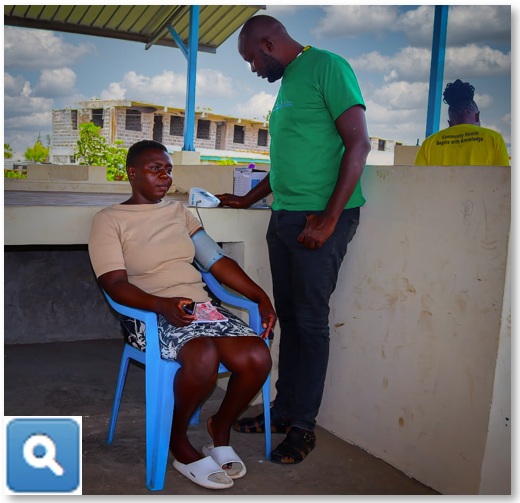 In August WiRED International’s community health worker (CHW) team of 18 people performed health services for 9,831 people in Kisumu, Kenya — 800 more than in July!
In August WiRED International’s community health worker (CHW) team of 18 people performed health services for 9,831 people in Kisumu, Kenya — 800 more than in July!
This month CHWs reported top concerns to be noncommunicable diseases such as malaria and cholera, infectious diseases such as sexually transmitted infections and other issues such as water treatment and mental health. WiRED’s ever-growing library of health education modules, readily available on smart phones, enable CHWs to promote healthy practices and disease prevention, across a wide range of illnesses.
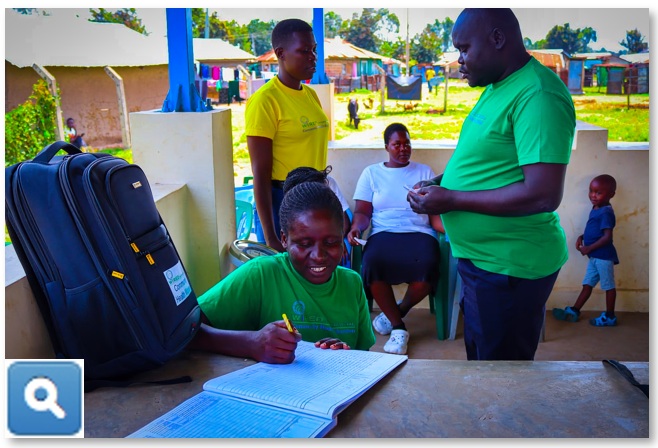 To counter the abrupt halt of global humanitarian aid by the Trump administration, WiRED not only is expanding our training of new teams of CHWs but also is preparing an Advanced Training Curriculum to provide CHWs worldwide with additional tools to protect the health of their communities. WiRED will unveil this program in the near future–more updates to follow!
To counter the abrupt halt of global humanitarian aid by the Trump administration, WiRED not only is expanding our training of new teams of CHWs but also is preparing an Advanced Training Curriculum to provide CHWs worldwide with additional tools to protect the health of their communities. WiRED will unveil this program in the near future–more updates to follow!
August Outcomes
WiRED initiated a new reporting system for our CHWs last March. The new outcomes procedure will record data on CHW home visits, referrals and follow-up and help us understand the direct interventions and level of care CHWs provide. The following include sample outcomes for August, noted by the CHW team.
Malaria
 As I was doing my field work in one of the areas in my community, there was a family I encountered during one of my sessions about malaria who complained they had the same signs and symptoms of malaria that I was talking about. In that session we talked about the causes, prevention and cure of malaria. Upon finishing my session, that family headed by the man of the house remained behind to have a talk with me. Keenly listening to him, he told me that he was always going to buy over-the-counter drugs. I told him that he and the family might be suffering from malaria and should go to the hospital to find out and also sleep under treated mosquito nets.
As I was doing my field work in one of the areas in my community, there was a family I encountered during one of my sessions about malaria who complained they had the same signs and symptoms of malaria that I was talking about. In that session we talked about the causes, prevention and cure of malaria. Upon finishing my session, that family headed by the man of the house remained behind to have a talk with me. Keenly listening to him, he told me that he was always going to buy over-the-counter drugs. I told him that he and the family might be suffering from malaria and should go to the hospital to find out and also sleep under treated mosquito nets.
On referring the family to the nearest hospital, Obunga dispensary, all the family members were diagnosed with malaria and were given malaria drugs. Following up with them, they have been taking their drugs properly as prescribed and also sleep under treated mosquito nets and are now out of danger.
—CHW Pauline Omuga
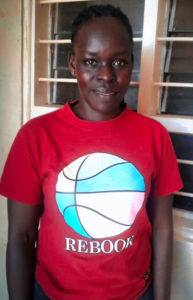 As I was doing health education in areas like Bandani, Kombedu and Kanyamedha, I came across three women with three children who have been having signs and symptoms of malaria. After I had finished my health education class with the community members, I took the three mothers aside and educated them on malaria’s mode of transmission, signs and symptoms and preventive measures.
As I was doing health education in areas like Bandani, Kombedu and Kanyamedha, I came across three women with three children who have been having signs and symptoms of malaria. After I had finished my health education class with the community members, I took the three mothers aside and educated them on malaria’s mode of transmission, signs and symptoms and preventive measures.
After that I referred them to the airport health center for further checkup. After two days of follow-up I found out that that the kids were suffering from malaria. They were tested by the services care provider, and then they were given malaria medication. Those caregivers were very grateful and they thanked WiRED for training their CHWs to offer good services at the community level.
In the month of August I referred 20 people for malaria testing. Out of the 20 people, six were diagnosed with malaria and given malaria drugs.
—CHW Millicent Randiki
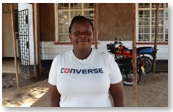 During this month of August, I came across a certain household that had been ailing for a long time but didn’t know what was happening. They were complaining of joint pains, headaches, nausea and stomach aches. I escorted them to Migosi sub–county hospital, where they tested positive for malaria and were given medication and advised to cutdown the bushes around where they lived and to cover open boreholes that could bring more mosquitos and bring malaria to them again.
During this month of August, I came across a certain household that had been ailing for a long time but didn’t know what was happening. They were complaining of joint pains, headaches, nausea and stomach aches. I escorted them to Migosi sub–county hospital, where they tested positive for malaria and were given medication and advised to cutdown the bushes around where they lived and to cover open boreholes that could bring more mosquitos and bring malaria to them again.
Also, this month, I came across eight family members who were suffering from malaria. I escorted them to be tested and they were treated and advised about malaria prevention.
—CHW Lency Mmbone
Cholera
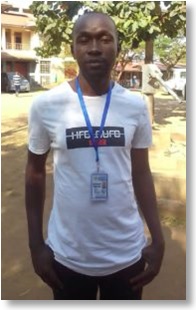 Cholera is caused by consuming water or food contaminated by bacteria. Once it attacks you, it causes diarrhea and dehydration. Without treatment, the disease can cause death even to people who previously looked healthy. This is why it is important for everyone to eat clean food and drink clean water as well. Hand washing is one of the ways that can prevent us from eating dirty food and water should be treated through the available methods to prevent cholera.
Cholera is caused by consuming water or food contaminated by bacteria. Once it attacks you, it causes diarrhea and dehydration. Without treatment, the disease can cause death even to people who previously looked healthy. This is why it is important for everyone to eat clean food and drink clean water as well. Hand washing is one of the ways that can prevent us from eating dirty food and water should be treated through the available methods to prevent cholera.
I referred two patients who had signs of watery diarrhea to the nearby dispensary where they got treatment and went back home.
—CHW Zackary Omondi
Fibroids
 In one of the areas, during my field work, I came across a young woman who has been suffering from severe abdominal pains and back pain. During my sessions with the group she opened up to me that during her menses her lower stomach pains her severely. When I asked her how she has been dealing with it, she told me that she has been buying over-the-counter drugs. I talked to her keenly about what was happening to her. I suggested that it could be fibroids and to be sure I referred her to JOOTRH (hospital) where that diagnosis was confirmed.
In one of the areas, during my field work, I came across a young woman who has been suffering from severe abdominal pains and back pain. During my sessions with the group she opened up to me that during her menses her lower stomach pains her severely. When I asked her how she has been dealing with it, she told me that she has been buying over-the-counter drugs. I talked to her keenly about what was happening to her. I suggested that it could be fibroids and to be sure I referred her to JOOTRH (hospital) where that diagnosis was confirmed.
After the hospital had confirmed that it was fibroids, she was put on proper medication. Since then she has been going to clinics and is now in stable condition.
—CHW Daniel Ayieko
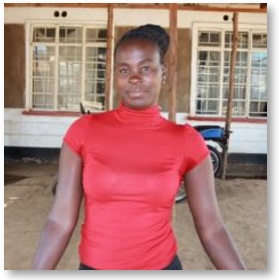 During my field work in my community I had a session with a set of my community members discussing fibroids. I was overwhelmed on how men in that community reacted on the topic. While discussing fibroids, the causes, side effects and treatment, there was a man who said that his wife’s belly is sometimes bigger so that he thinks her pregnant. It’s good that his wife was also there, so after the session I had a talk with both of them and advised then to go to the hospital for a check–up because her condition might be fibroids. They were happy with the teachingsand went home happily, promising to go to the hospital.
During my field work in my community I had a session with a set of my community members discussing fibroids. I was overwhelmed on how men in that community reacted on the topic. While discussing fibroids, the causes, side effects and treatment, there was a man who said that his wife’s belly is sometimes bigger so that he thinks her pregnant. It’s good that his wife was also there, so after the session I had a talk with both of them and advised then to go to the hospital for a check–up because her condition might be fibroids. They were happy with the teachingsand went home happily, promising to go to the hospital.
The couple went to the hospital and after the check-up with the doctor, the man learned that his wife has fibroids. They have grown to undesirable centimeters. She was given some medicines and told to return for frequent check-ups. Up to now the woman doesn’t experience the pains anymore and is being treated.
—CHW Mary Atieno Ogutu
Child Growth

A number of women complain about male involvement during pregnancy. The males also complain that during pregnancy their expectant women have countless mood swings and expect too much care from them. I met a woman who was six months expectant who had not yet gone for prenatal visits. I decided to refer her to Kuoyo dispensary after explaining to her the importance of the prenatal, delivery and postnatal care. When she went to the hospital the doctors examined her and encouraged her to always take folic acid to help in child growth, development and formation of the baby. There is another expectant mother who said she stopped taking folic acid because after taking them she had nausea, bloating and loss of appetite thus after referring her to Kuoyo dispensary she was directed by the doctor to take folic acid after meals.
I referred two expectant women to Kuoyo dispensary. One woman stopped taking folic acid because of the side effects so the doctor intervened and helped her out. The other woman started prenatal visits at six months and the doctors emphasized the importance of the antenatal visits.
—CHW Tracy Agatha
Family Planning
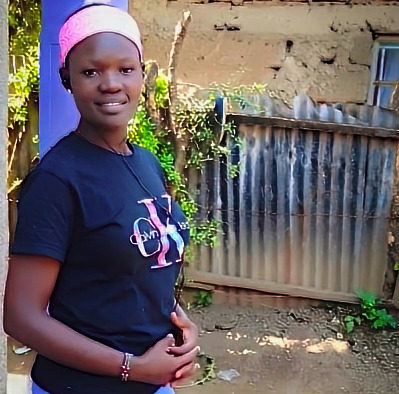 When I was teaching about family planning benefits and side effects, I came across a young mother aged 22 years having side effects from family planning. The young mother had asked for Femiplan pills that she was given at the JOOTRH (hospital). The instructions clearly indicated that she was to take one a day, but she did not understand the prescription and ended up taking the pill three times daily, which almost killed her. She became weaker and even began to turn yellow in color. I found her lying on the floor as if she were dead. I gave her a lot of water to take and then stopped her from using the pill until she became better. After three days I took her to the hospital at JOOTRH for care.
When I was teaching about family planning benefits and side effects, I came across a young mother aged 22 years having side effects from family planning. The young mother had asked for Femiplan pills that she was given at the JOOTRH (hospital). The instructions clearly indicated that she was to take one a day, but she did not understand the prescription and ended up taking the pill three times daily, which almost killed her. She became weaker and even began to turn yellow in color. I found her lying on the floor as if she were dead. I gave her a lot of water to take and then stopped her from using the pill until she became better. After three days I took her to the hospital at JOOTRH for care.
During my field work, I came across a 22-year-old mother who was having side effects from family planning. I took her to JOOTRH for further observation. I have been doing follow–up and found that she is responding positively.
—CHW Liz Adhiambo
Pregnancy
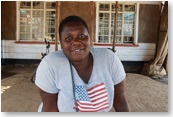 Pregnancy can be challenging, especially in the first trimester. In most cases this is where many pregnant women develop depression if they are not taken care of well. They experience mood swings and hormonal imbalances, which can make them decide to either abort the pregnancy or keep it depending on the attention they get. Some even lose pregnancies due to depression. This month in the community I talked to both men and women on how they can take care of each other during the first trimester so that they can be happy and help our women grow healthy children. They agreed that they would do so.
Pregnancy can be challenging, especially in the first trimester. In most cases this is where many pregnant women develop depression if they are not taken care of well. They experience mood swings and hormonal imbalances, which can make them decide to either abort the pregnancy or keep it depending on the attention they get. Some even lose pregnancies due to depression. This month in the community I talked to both men and women on how they can take care of each other during the first trimester so that they can be happy and help our women grow healthy children. They agreed that they would do so.
There was a woman who took on hard jobs carrying objects. She started bleeding. I took her to the hospital at Nyawita medical, and she found out she was pregnant. She was given medication and told to rest. Luckily she did not lose the pregnancy and she was advised to stop lifting heavy objects. Now she is doing fine and still on medication.
—CHW Bunnyce Atieno
First Aid (during Rainy Season)
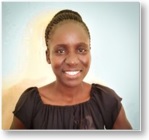 During this rainy season, many houses in our community tend to collapse due to floods. The houses are not well built. People living in our locality have little income to enable them to build sturdy houses; most of the homes are made of mud. To help the situation, I taught them how to avoid floods that enter their houses by clearing waterways.
During this rainy season, many houses in our community tend to collapse due to floods. The houses are not well built. People living in our locality have little income to enable them to build sturdy houses; most of the homes are made of mud. To help the situation, I taught them how to avoid floods that enter their houses by clearing waterways.
At least 15 people are living happily during rainy season because they adhered to the rule of making or clearing waterways. Floods are no longer a problem for them.
—CHW Imeldah Anyango
Arthritis
 During one of my sessions in my community there was an aged man who complained to me about body aches most of the time. He told me that he is frequently on and off on pain killers and that no results could be found when tests were done. During my community class session we discussed arthritis, and he keenly listened to my teachings. After the session I had a brief talk with him and considering the signs of arthritis I concluded that he could be suffering from arthritis. Thereafter I referred him to the JOORTH where I personally took him to find out if he had arthritis.
During one of my sessions in my community there was an aged man who complained to me about body aches most of the time. He told me that he is frequently on and off on pain killers and that no results could be found when tests were done. During my community class session we discussed arthritis, and he keenly listened to my teachings. After the session I had a brief talk with him and considering the signs of arthritis I concluded that he could be suffering from arthritis. Thereafter I referred him to the JOORTH where I personally took him to find out if he had arthritis.
At the JOOTRH the man was keenly examined by the doctors, who concluded that he has been suffering from arthritis because of his age. He was advised on the things to do and the doctors also gave him some medicines to manage this conditions. Now he is doing fine since he is following the doctor’s instructions and also taking his medicines.
—CHW Steve Wonder Okello
Dental Health
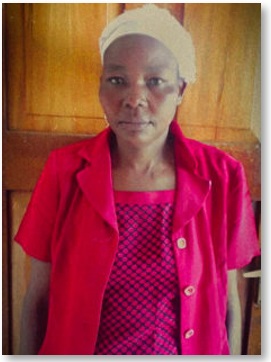 As I was going round in the community educating the community members about health conditions, I came across a man who had oral problems due to the fact that the he never brushed his teeth using toothpaste. He was just using a brush only. This resulted in a more serious problem with his teeth. I informed him that he has to use toothpaste as there are bacteria in the mouth that are eating leftover foods in his mouth and this causes teeth problems. He went and bought toothpaste and is now having good teeth, and the mouth is now smelling the way it used to smell. He is now happy and can talk with people without fear.
As I was going round in the community educating the community members about health conditions, I came across a man who had oral problems due to the fact that the he never brushed his teeth using toothpaste. He was just using a brush only. This resulted in a more serious problem with his teeth. I informed him that he has to use toothpaste as there are bacteria in the mouth that are eating leftover foods in his mouth and this causes teeth problems. He went and bought toothpaste and is now having good teeth, and the mouth is now smelling the way it used to smell. He is now happy and can talk with people without fear.
—CHW Milka Aoko Nyadiang’a
Immunization/Vaccination
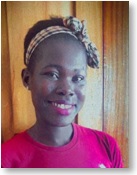 During my sessions with the community this month, I found out that most of these women are not taking their children for immunizations after getting the initial immunizations. After that, they skip vaccines. I taught some women the benefits of those vaccines to their children so that they should not take it as lightly as they were doing before. Those vaccines are very important to our young ones, and we urged people that anytime doctors stress vaccine schedules to listen to them. They promised not to miss even a single date and also they were to take their young ones to clinic even for weighing in order to know better how their children are growing. This was good information to the community from WiRED.
During my sessions with the community this month, I found out that most of these women are not taking their children for immunizations after getting the initial immunizations. After that, they skip vaccines. I taught some women the benefits of those vaccines to their children so that they should not take it as lightly as they were doing before. Those vaccines are very important to our young ones, and we urged people that anytime doctors stress vaccine schedules to listen to them. They promised not to miss even a single date and also they were to take their young ones to clinic even for weighing in order to know better how their children are growing. This was good information to the community from WiRED.
—CHW Carren Osomo
August 2025 Statistics
During the month of August 2025, 18 CHWs in Kisumu, Kenya, reached a total of 9,831 people with health services. Working 24 hours per week, each of the CHWs met with at least 54 patients a week, and the largest number seen in a week by a single CHW was 214, most of them in health training classes.
Top health concerns for August in order of prevalence:
- Malaria
- Nutrition
- Water treatment
- Sexually transmitted infections
- Cholera
- Mental health
- Family planning
- First aid
- Sanitation and hygiene
The following list is all in a day’s work for WiRED’s 20-member paraprofessional CHW team. Their work includes:
- Hosting group sessions about disease awareness, prevention and treatment
- Talking one-on-one with people
- Screening for illnesses
- Treating common complaints
- Providing simple medications to ease pain in the midst of stoppage of health funding programs, especially from the United States
- Performing home visits and offering home care
- Making referrals to clinics as needed
- Following up with patients to check on their recovery and ensure that they are taking any prescribed medications properly
- Accessing WiRED’s library of health modules through our apps (Android app and Apple)


